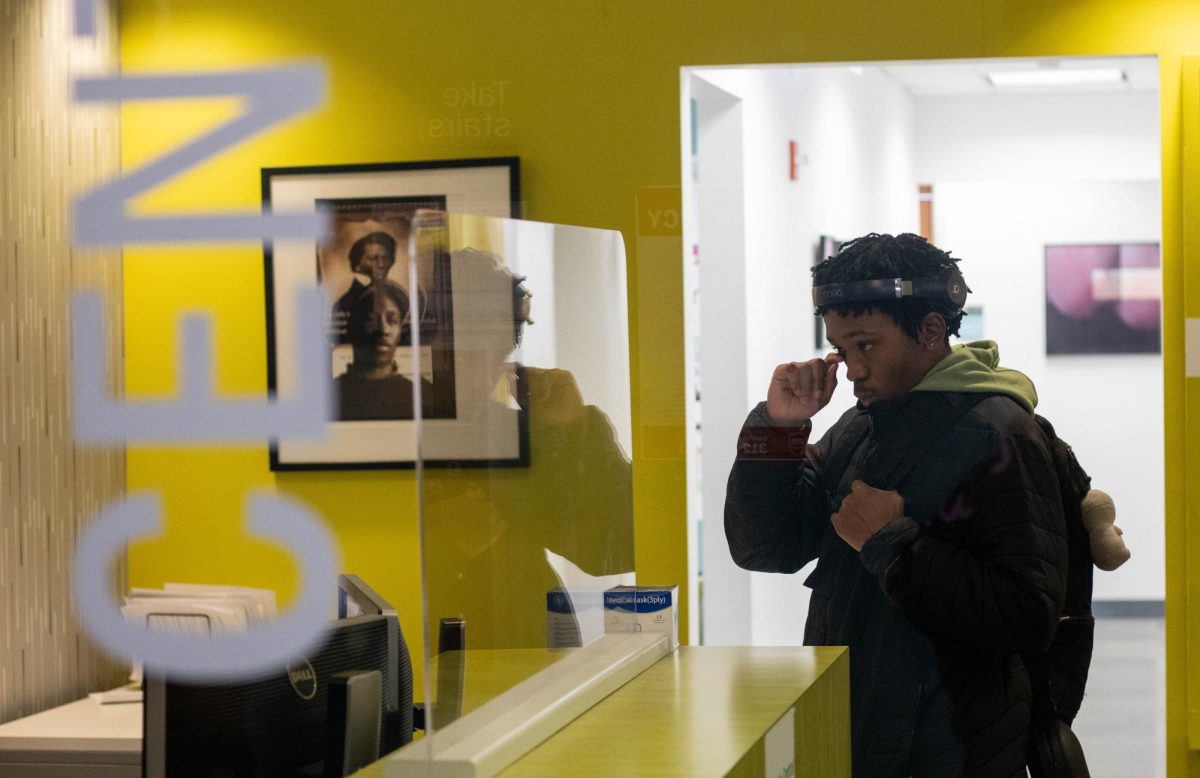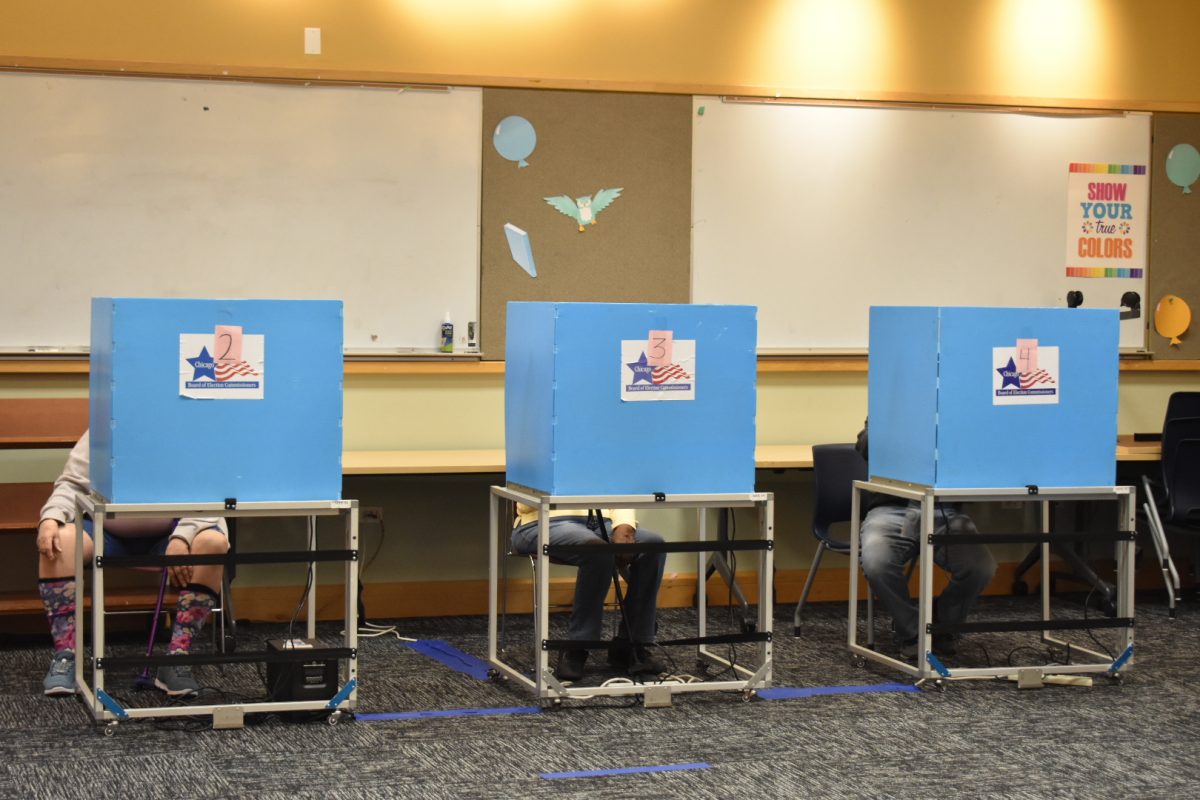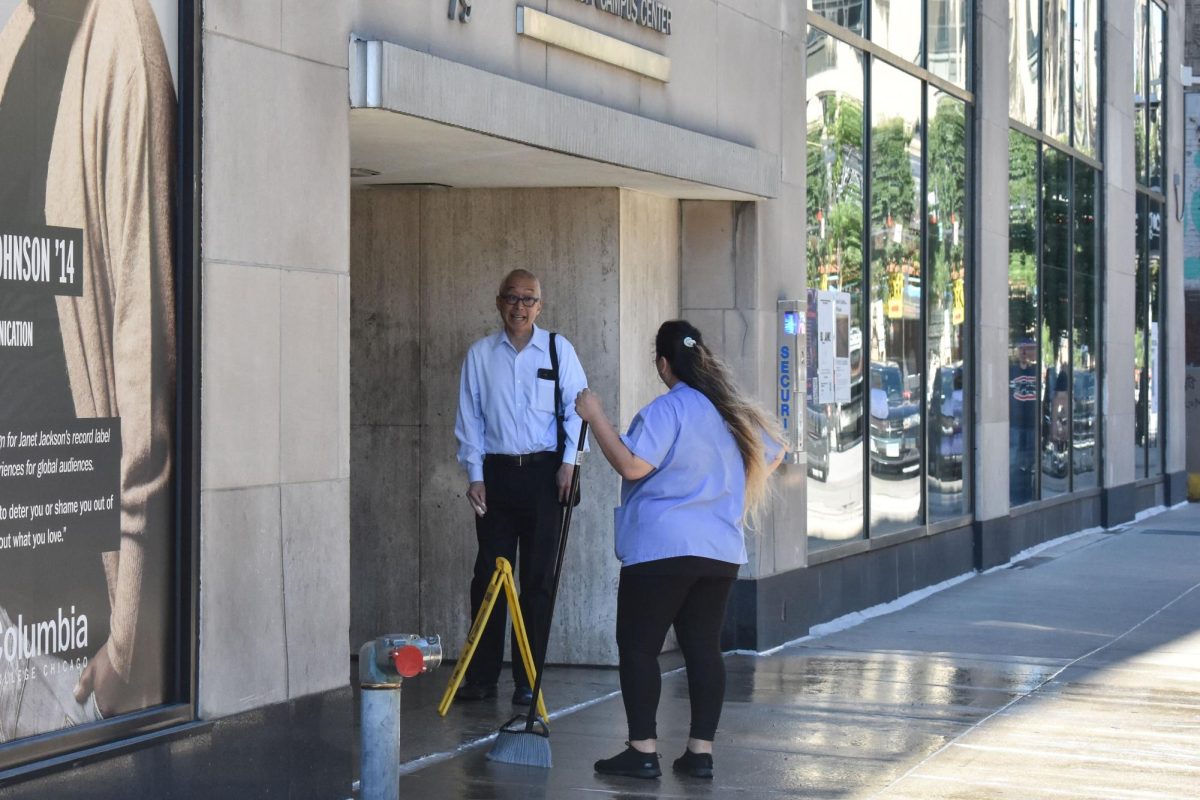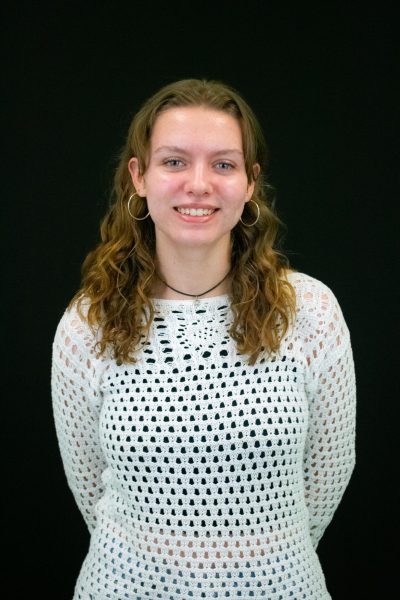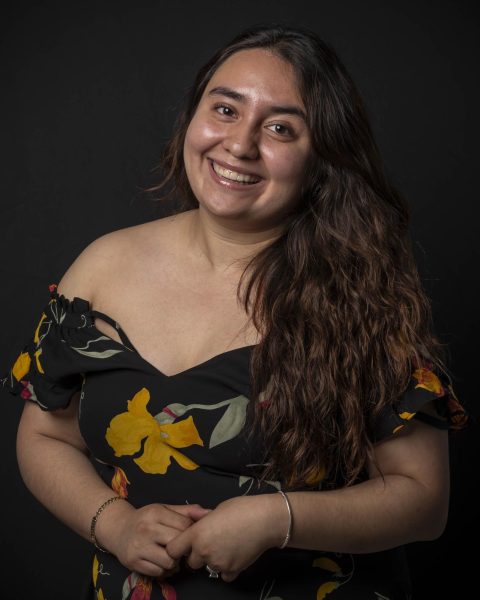The college continues to struggle with fewer first-year applications and deposits as it moves closer to the time when most students have to commit to attending next year.
In an email to the campus community on Thursday, April 4, Derek Brinkley, Columbia’s assistant vice president for undergraduate admissions, said first-year applications are down 11%, and first-year deposits dropped 49%, despite Columbia seeing record attendance at its Admitted Students Days this spring.
Transfer applications are also down 15%.
According to Brinkley, the deposit gap, which is the difference between the number of deposits received from the entering class this year from last year, is expected to “grow significantly” between now and May 1. Columbia pushed back its decision and priority deposit deadline to June 1 because of delays from the revamp of the application for federal aid.
“It’s unlikely that we’ll see much narrowing of that gap moving forward, especially on the first-year side,” he said.
President and CEO Kwang Wu-Kim also has blamed enrollment declines on the historic seven-week-long part-time faculty strike last fall. Columbia depends on tuition to fund its operations.
Typically, colleges like Columbia already have sent financial aid award letters, but the FAFSA application system has been plagued by glitches since a new form was rolled out on Dec. 30. The FAFSA determines eligibility for federal Pell Grants and federal student loans.
“These FAFSA delays have been brutal on nearly all colleges and universities this year – and we are no exception,” Brinkley said in the email to the Chronicle on April 3. “While we began receiving initial FAFSA data in late March, we don’t anticipate that we’ll be able to award financial aid for the next several weeks due to system updates needed to accurately process the data and prepare award packages.”
The college updated its online calculator for families to get an idea of how much financial aid they will get.
The college also pushed back the deposit deadline in 2020 during the pandemic, Brinkley told the Chronicle.
The deposit gap grew and then narrowed that year, he said. “As we approached May 1 back in 2020, we were 22% behind in deposits compared to 2019, ” Brinkley added. The college caught up by June 1.
“Since we moved the deposit date, the incentive to deposit was not there in 2020,” he said. “I anticipate that we’ll see a similar pattern this month.”
This year the problem was with FAFSA. It started with the delay in a roll-out of the new application portal.
In past years, millions of students and their families have waited for the FAFSA application to open on Oct. 1, so they can apply. This form indicates a series of questions that determine eligibility to be a dependent or independent student for the purposes of applying for federal student aid.
But the online form, which was simplified, did not open until Dec. 30, 2023.
For the junior photography major Carolina Villanueva, this has become another challenge, aside from being first-generation and not getting enough help.
“I thought that every year it would be easier but that is not the case,” Villanueva said. It turns out that “it is more difficult.”
When Villanueva started the application in December, they had several problems with the website, including not being able to upload the requested information, saying they “wanted links for everything.”
Frustration has not been absent during this process for Villanueva, saying that there are “so many” things you have to do to receive aid.
“As I am the first [in my family] to attend university, I go to school to get help and they [say] that sometimes they have never seen a problem before and the application is new this year,” Villanueva said.
Carmen Ordoñez, a junior photography major, said she depends on financial aid to cover her tuition.
She said the FAFSA situation has affected her mental health, and has given her uncertainty about the future of her education.
“It’s bad that they add more stress to you about something unnecessary,” Ordoñez said.
Nurrah Muhammad, senior double major in film and TV and animation, is still waiting for her FAFSA award letter to see if she can afford graduate school.
Muhammad said she found accessibility to the new form to be “on and off” in December. Now, she is waiting to be able to make corrections to her form, which impacts how much aid she will receive.
Edmundo Suarez, a junior graphic design major, has been paying for his education with the help of scholarships and federal financial aid. “I’m worried because this helps cover part of my school tuition, so if it doesn’t work out, I’ll have to pay out of pocket, which would be difficult.”
Although in previous years he has encountered difficulties filling out this form, once again this year, the cycle returns.
“I started I think two weeks ago, I was filling out everything until I got stuck in the parents’ part, where I had to add my mother’s information,” Suarez said.
According to Suarez, the only problem that prevents him from finishing filling out the FAFSA is that his mother does not have a social security number, which, for many students like him, has been a challenge.
Under new FAFSA guidelines, parents need to set up their own account, where they are asked to provide their social security number. Unlike applicants, who must have a social security number, parents can enter “000-00-0000” and still fill out the form.
However, parents in this position have to submit other forms of documentation and identification, which is another area where students like Sergio Aguirre, a sophomore film major, have struggled.
Aguirre had a “nightmare” trying to submit the necessary information to establish an account for his mother, who does not have a social security number. On multiple occasions, while setting up the account, the website would crash and not save the progress.
After finally being able to submit it, Aguirre continued to experience a “limbo,” going back and forth with FAFSA trying to provide the necessary information for his mother, as a contributor for the FAFSA form, to have an account.
Meanwhile, Suarez said he has a hard time getting through the FAFSA number for help. “I have waited a couple of hours for them to answer and still, I have not received any help.”
The long wait for help to fill out the form is something very similar for Ordoñez. When she went to Columbia Central to correct her form, she learned she would have to wait until April for a form to correct it, when previously she could edit the form without a problem. Having her own challenges with the application, Ordoñez acknowledged the similar stress and conflicts that students with undocumented parents have.
“I think it’s going to be even more difficult for them to get financial aid because of the changes,” she said. “Because it’s very intimidating, starting to fill out a form that you are not familiar with.”
Additional reporting by Uriel Reyes
Copy Edited by Patience Hurston
Resumen en Español:
Los cambios recientes en el formulario de FAFSA han planteado dificultades y ha causado estrés a los estudiantes y familias a través del país, y Columbia no es una excepción, dijo Derek Brinkley, el subdirector de admisiones de pregrado de Columbia, en un correo electrónico enviado el jueves. El formulario fue lanzado el 30 de Diciembre, y desde entonces, estudiantes han experimentado problemas de completar el formulario, realizar cambios después de entregarlo y obtener la ayuda que necesitan. Por el retraso de enviar las cartas de concesión de ayuda financiera, según Brinkley, el día de decisión de los estudiantes nuevos se retrasó del 1 de Mayo al 1 de Junio.
Resumen en Español por Sofía Oyarzún


